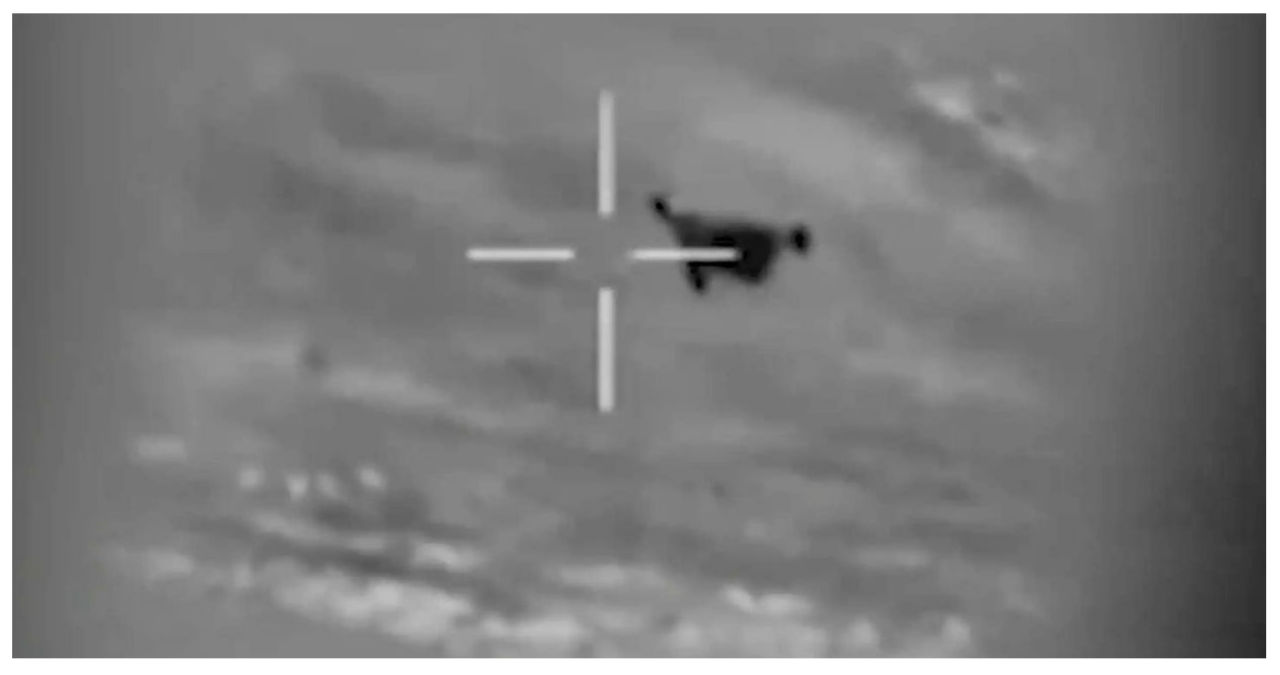Iran and its proxy militias unleashed a massive and unprecedented assault on Israel on Saturday night local time. The attack involved a barrage of 170 attack drones, 120 ballistic missiles, and 30 cruise missiles, according to the Israel Defense Forces.
In a historic event, Iran launched an unprecedented direct attack on Israel from its own soil. The Israeli Defense Forces (IDF) revealed that an astonishing 99% of these threats were successfully intercepted by Israel and its allies. What’s even more impressive is that the majority of these intercepted threats didn’t even manage to cross into Israeli territory, showcasing the remarkable effectiveness of Israel’s air-defense system.
In the eastern Mediterranean Sea, the USS Arleigh Burke and USS Carney, both US Navy destroyers, successfully intercepted and destroyed a total of four to six ballistic missiles. Additionally, an official confirmed that a Patriot air-defense system effectively shot down one ballistic missile over Iraq.
Israel’s advanced air defense network, consisting of the Arrow 2 and 3 systems, successfully intercepted most of the remaining ballistic missiles. Despite this, a small number of missiles managed to breach Israeli territory and caused minor damage, including hitting an IDF base.
According to a military official, American fighter jets successfully intercepted and shot down over 70 Iranian one-way attack drones. Although the exact number of aircraft involved was not disclosed, these interceptions were a significant accomplishment for the US military.
President Joe Biden has announced that he personally ordered the relocation of aircraft and ballistic missile defenses to the region in the past week.
In a statement, he expressed gratitude for the successful deployments and the exceptional expertise of our service members in assisting Israel in neutralizing the majority of the incoming drones and missiles.
The photo above, taken by Petty Officer 3rd Class Scott Pittman, showcases the US Navy in action.
“Our forces are positioned to safeguard the well-being of US troops and partners in the region, bolster the defense capabilities of Israel, and promote stability within the region,” stated Defense Secretary Lloyd Austin in response to the attack.
Britain’s defense minister, Grant Shapps, has confirmed that the UK successfully intercepted several drones. According to the IDF, none of the drones or cruise missiles launched by Iran managed to cross into Israeli territory.
The ongoing and widespread Middle East crisis, triggered by Hamas’ October 7 terror attack across southern Israel, has witnessed the US military’s largest air-defense battle. This attack has caused a surge of violence across the region.
Since October, US forces have been actively countering aerial threats launched by Iran-backed militias in various areas including Iraq, Syria, the Red Sea, and the Gulf of Aden. One notable incident occurred earlier this year when the Yemen-based Houthis carried out a massive attack involving over 20 drones and missiles.
The IDF is responsible for ensuring the security and defense of Israel.
In April, Israel carried out an airstrike on an Iranian diplomatic facility in Syria, resulting in the deaths of multiple military officials, including two generals from the Islamic Revolutionary Guard Corps. In response, Tehran launched an attack against Israel.
After the incident, Iran made a strong declaration of seeking revenge and indicated that it would take action against Israel. The entire Middle East was on high alert during the past two weeks, anticipating a potential response from Tehran. However, the specific extent and magnitude of this retaliation remained uncertain.
The international community strongly condemned the attack on Saturday, with world leaders criticizing Iran for its reckless actions. The leaders of the G7, consisting of the US, UK, France, Germany, Canada, Italy, and Japan, expressed solidarity with Israel and reaffirmed their commitment to ensuring the country’s security.
“In their statement, the leaders expressed concern over Iran’s actions, stating that it has taken further steps towards destabilizing the region. They also highlighted the risk of provoking an uncontrollable regional escalation and emphasized the importance of avoiding such a scenario.”
Israel is currently assessing its response to the Iranian attack, but it remains uncertain what course of action it will ultimately take.

